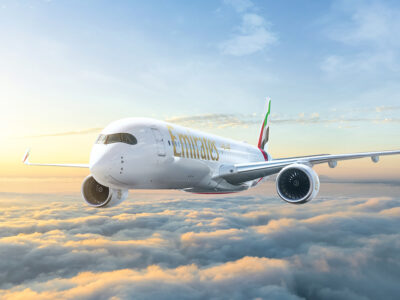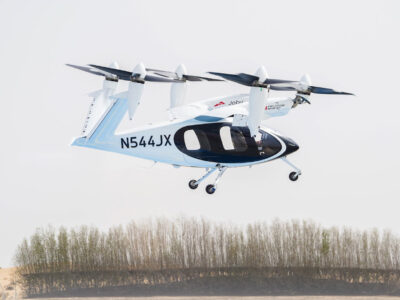Salma Hareb, the chief executive of Jebel Ali Free Zone Authority and Economic Zones World, tells Claire Ferris-Lay about why Dubai World’s debt restructuring won’t affect her plans this year.
A 2008 copy of Forbes Arabia lies on Salma Hareb’s coffee table in her office. This particular edition of the magazine ranks the Arab region’s most prominent women in business and Hareb, the CEO of Jebel Ali Free Zone Authority (JAFZA) and Economic Zones World (EZW) is listed as the number one; her face emblazoned across the cover.
“I should remove that one,” she laughs when I point it out. “It was surprising for me, I just thought ‘me?’ But I’m proud because it’s the first time an Emirati has got this,” she pauses before adding: “I do feel I put a lot of effort in as well.”
Emirati-born Hareb, a former lab technologist, spent years studying for diplomas in IT and Business Studies while also holding down a job at Dubai’s Department of Health before she decided on a change of career. In 1997, she started working as a planner for JAFZA, the operator of one of Dubai’s busiest free zones. Hareb quickly moved up the ranks and was five years later promoted CEO of both JAFZA and its parent company, EZW.
Both JAFZA and its sister firm, DP World — which operates the port at Jebel Ali as well as 48 other terminals worldwide — have been significant drivers for Dubai’s economic growth over the last 25 years and have helped secure the emirate’s position as a global trading hub. While the port transfers goods from large containers that are too big for other ports to handle, the free zone provides facilities to around 6,500 companies to manufacture and distribute its goods.
A 2007 study estimated that the free zone supported around 26 percent of all of Dubai’s domestic economic activity. “The port supports the free zone and the free zone supports the ports operations and they have become the biggest driver of the Dubai economy,” explains Hareb. “The companies that set up in Jebel Ali Free Zone are very critical for the economy for Dubai. People come here, buy houses, live here, then there is the purchase power of the employees here and of course the foreign direct investment.”
In its 25 years of operation, JAFZA has grown over 330 percent. The zone’s most substantial growth was, unsurprisingly, during Dubai’s five-year real estate boom. Demand was so great, many wanting to establish within the zone found themselves on year-long waiting lists while its existing clients often complained of soaring rates. “Until this year demand has always, always exceeded our supply… No matter what you do we had very long waiting lists, they [companies] can wait for years sometimes,” says Hareb.EZW, which operates JAFZA as well as Dubai-based TechnoPark and Dubai Auto Zone, also took on a greater role during Dubai’s boom years. In addition to establishing free zones around the world — including hubs in Djibouti, Shanghai, India and a 1,322 acre site in Southern Carolina in the US — EZW acquired Gazeley in July 2008.
UK-based Gazeley is a provider of sustainable logistics space and is the builder behind the distribution warehouses for the American firm, Wal-Mart in Britain and China. Now under the EZW group of companies, the firm is helping to develop warehousing across the group’s free zones and is already working on several sustainable projects in JAFZA. “We didn’t have the capabilities to build customised units and warehouses… [Now following the acquisition of Gazeley] EZW has the capability for building long term free zones and building specific facilities for our customers like DHL who want to be with a certain provider,” says Hareb.
Despite the continued growth, the economic downturn — which saw six percent declines in the port’s volumes during the first nine months of the year — has slowed down operations in both companies. Not that Hareb is too downcast. “Nowadays I think we are a bit relieved that we can cope with the demand,” she admits. “We were really breathless trying to cope with demand but now the demand can be kept by normal supply.”
Hareb has made a number of key changes at JAFZA to better cope amid the downturn. The timeframes in which new companies must start building their own facilities onsite have been extended slightly while other have managed to renegotiate contracts that were signed at peak 2008-prices.
“We tried to go easy on the customers. We have rules [such as] you have to build within six months so we gave them longer periods in which to build. That helped to keep the facility without putting money into it. Some customers were offered use of the land as temporary storage so rather than building their own facility, they used it to store their goods for a while until they are asked to build a facility,” explains Hareb.
“They have to build because the land is not offered as open storage. What we try to do is establish an investment in this country and when you invest in the country, you are a long term partner,” she adds.
“We also negotiated some contracts that were offered at the peak of the market. Not for existing clients but for new clients who were offered higher rates. [This was done] on a case by case basis… We are not a real estate company but we try to make it easier for customers to come and establish.”In November, Dubai World, JAFZA’s parent company, announced it would ask its creditors to accept a delay in all repayments until the end of May 2010. The news sent shock waves across the world; markets plummeted from London to New York and Dubai came under a huge amount of criticism in the international press. Through their association to Dubai World, both JAFZA and DP World had their credit ratings downgraded by credit ratings agencies, Moody’s and Standard & Poor’s, despite statements that the two were exempt from the restructuring.
Hareb says both DP World and EZW have enough cash to meet their finance and investment needs for the foreseeable future. “There is no concern whatsoever for the operations of DP World and EZW. The payments are being paid and the cash flows of the companies can take them forward to a few years with the existing financial plan.”
She adds that two days after Dubai World’s announcement, JAFZA made a coupon payment on its $2.04bn Islamic bond (sukuk). According to Dow Jones analyst calculations the sukuk’s payment is estimated to be between $34-36.7m. Asked if she is concerned about the effect the lower credit ratings will have on business in the future, Hareb answers: “Our sukuk will not be affected because the terms are not built on ratings… We paid our coupon on time, all the time and we expect to [continue to] pay it,” she adds.
“Dubai World will work it out under the restructuring. Don’t forget this company has contributed to building a city as well so that’s quite important and people should not forget about that.” Although she does believe that this has been forgotten, Hareb also says she can understand why Dubai came under such attack. “You can understand with the celebrity that was focused on [it] all of the time. People want to pinpoint mistakes and try and find something [but] Dubai is very successful and what Dubai has done no one else can make in the [same] short time.”
Despite last year’s slowdown, JAFZA still managed to post an eighteen percent increase during the first three quarters of 2009 as well as adding an additional 300 companies net. Overall, EZW managed to grow the number of companies within its free zones by 800 companies net.
Its continued growth is likely to see it hit target this year. “In a downturn we are still growing… For example, we put a lot of effort in to attract American companies unlike European and Far Eastern companies who come easily [and] this year we had more American companies than we expected,” says Hareb.
She adds her own theory to the continued growth. “There were many investors in Dubai that just wanted to invest [but] because the real estate went through a downturn… they thought that this was a good area to invest while they wanted for the real estate to hit bottom.”







